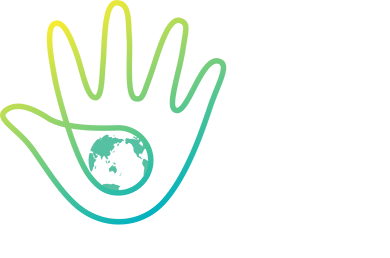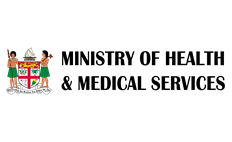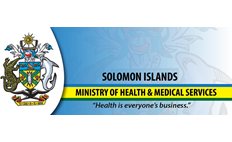Solomon Islands
The Solomon Islands is one of Australia’s closest countries and has collaborated with MCRI on innovative research programs to find new and effective ways to eliminate scabies. Surveys conducted during research found about 19% of the population had scabies at the time of the survey. Similar to findings in neighbouring Pacific Island countries, the rate of scabies is higher among children and infants; between 34% and 45% scabies prevalence among children aged 5 to 9 years old.
The World Scabies Program (WSP) in the Solomon Islands is working to strengthen the local and national health system capacity for the control of scabies country wide. WSP works in close collaboration with the Ministry of Health and medical services and other partners working in Solomon Islands. More specifically, a large cohort of local Solomon Island health staff will be trained in the identification and management of scabies infestations. Where possible WSP works to integrate and coordinate with other Neglected Tropical Disease (NTDs) activities in the country to establish a streamlined and efficient approach to tackling multiple diseases in the community.
World Scabies Program Solomon Islands Team
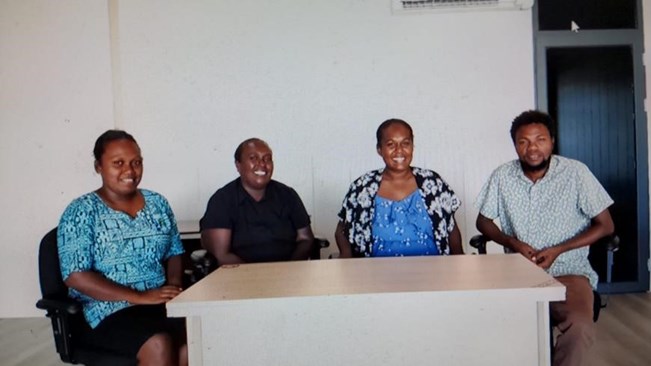
From left to right: Johnina Huniehu (MDA Officer), Julie Zinihite (WSP Country Representative), Ayleen Sosopu (MDA Officer) and Vianney Alebua (MDA Officer)
Our work
Second National MDA in Solomon Islands has begun in 2024
In 2024, WSP is undertaking a second national MDA for scabies in Solomon Islands.
The ivermectin-based MDA began in March, kicking off in Temotu province. Teams of nurses and health workers travelled around Temotu to deliver two doses of scabies medicine to the 20,000 living in the province over the course of a month. WSP is very grateful to all the people involved in the MDA in Temotu.
In the coming months the national MDA will continue throughout the remaining provinces, with teams working incrementally going from province to province to deliver the medicines. Where possible, WSP plans to integrate with other public health programs to carry out integrated interventions with other NTDs, to maximise resources and decrease the load of public health programs on the community.
WSP is working hard to increase the national mass drug administration (MDA) coverage compared to the first national MDA completed in 2023. The aim is to further reduce the burden of scabies in Solomon Islands, which remains at endemic levels in the population.

Team Temotu ready for MDA, WSP 2024

Preparing the height sticks for MDA, WSP 2024
Integrated NTD Surveillance Survey with Scabies, Yaws and Trachoma
WSP, in collaboration with the Ministry of Health and Medical Services (MoHMS) and partner organisations the Kirby Institute and Fred Hollows Foundation, recently took part in the first national integrated neglected tropical disease (NTD) survey in Solomon Islands.
In September 2023, MoHMS and partners initiated a training program for nurses and public health officers to carry out the nationwide survey on three NTDs: scabies, yaws, and trachoma. The WSP Program Lead and Senior Program Officer travelled from the Melbourne Office to attend the trainings in Solomon Islands. Nurses were trained on clinical skin examinations for scabies and infection, field communications, consent, and survey logistics. Data collectors were trained on how to use a survey tool called REDCap to collect survey data on electronic tablets.
This integrated survey enabled the WSP to undertake a post-mass drug administration (MDA) prevalence survey to assess the prevalence of scabies following the national ivermectin-based MDA completed earlier in the year. The teams traversed all provinces of Solomon Islands and surveyed over 11,000 people for scabies, collecting valuable data that will inform interventions going forwards.
The dedication and tireless efforts of all teams involved in the survey are commendable, with this collaborative effort underscoring a shared commitment to public health and disease control.

Integrated survey training in action, WSP 2023

WSP, MoHMS, partners and participants at the integrated survey training program, WSP 2023

National MDA for Scabies
The National MDA for Solomon Islands began in June 2022. 46 provincial trainers were trained in Honiara. These trainers then went out into the provinces to conduct the training to over 600 MDA staff. More than 1000 people in more than 200 teams are involved in rolling out the MDA in Solomon Islands, these include nurses, health promotion officers, pharmacy officers, volunteers, boat drivers and boat crews. With the assistance of WSP, each province formulated their microplans to roll out MDA. WSP Solomon Islands staff also conducted supervisory visits and coverage surveys in each of the provinces.
We are very proud of the effort from Ministry of Health and Medical Services and WSP team in completing this MDA. Reaching every island in Solomon Islands with MDA twice (for two doses) requires huge commitment and dedication.
The enthusiasm and uptake from the community was fantastic and we are glad we have been able to provide this program to the people of Solomon Islands.
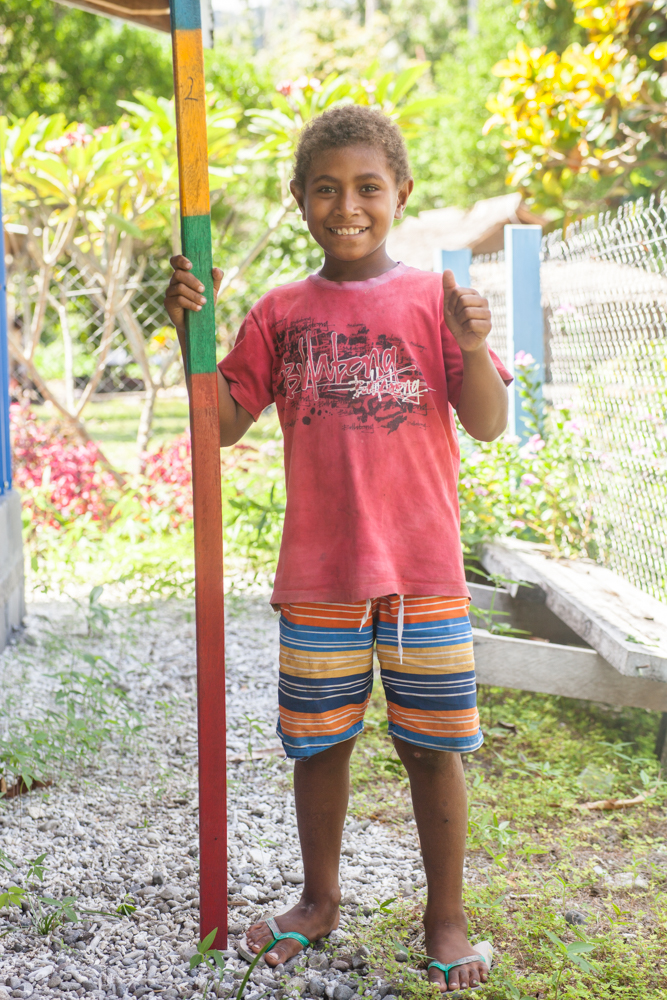
Boy with height stick, WSP 2022
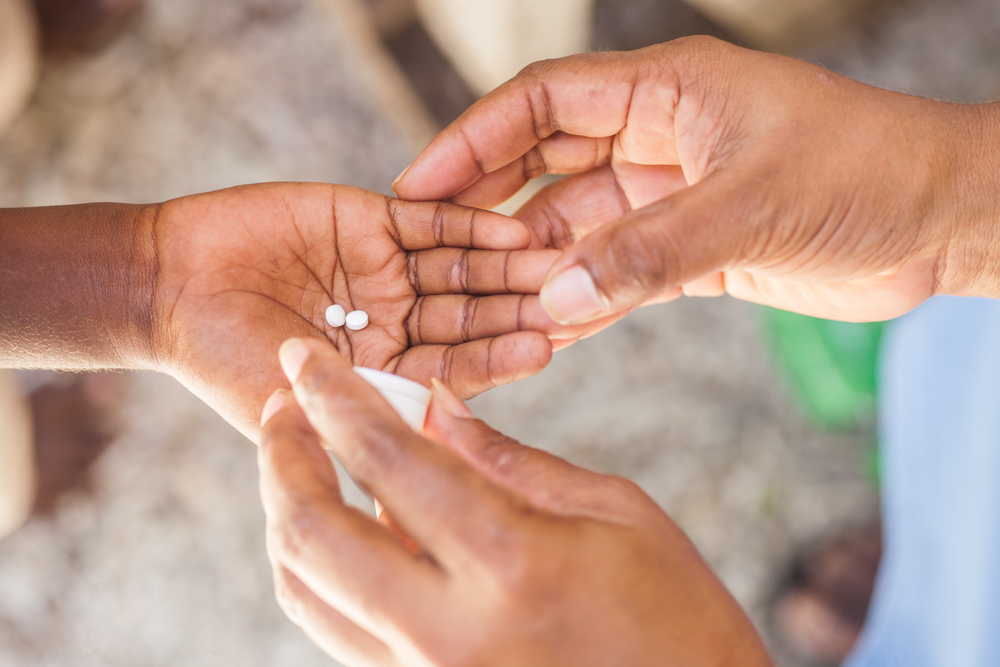
Administering ivermectin during the MDA, WSP 2022
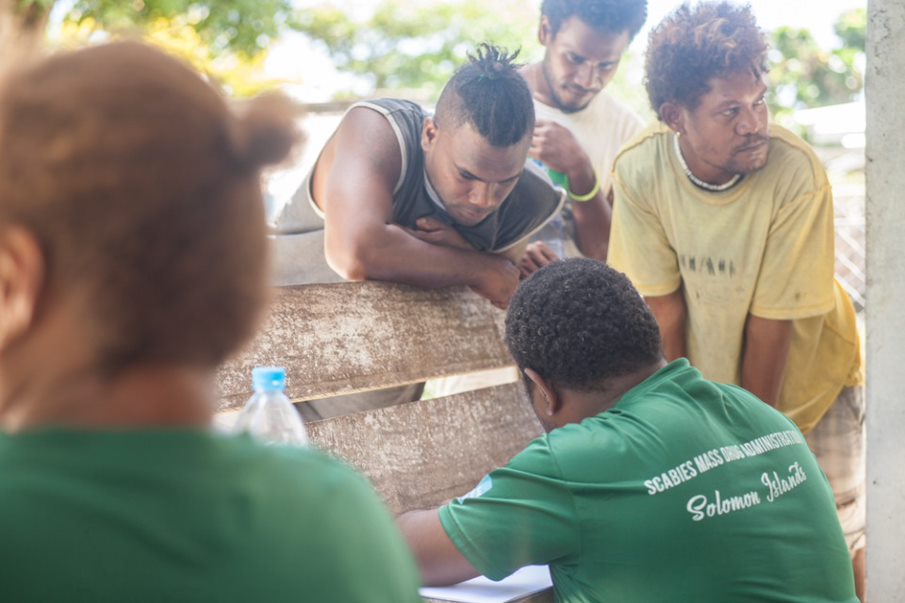
MDA in the Solomon Islands, WSP 2022
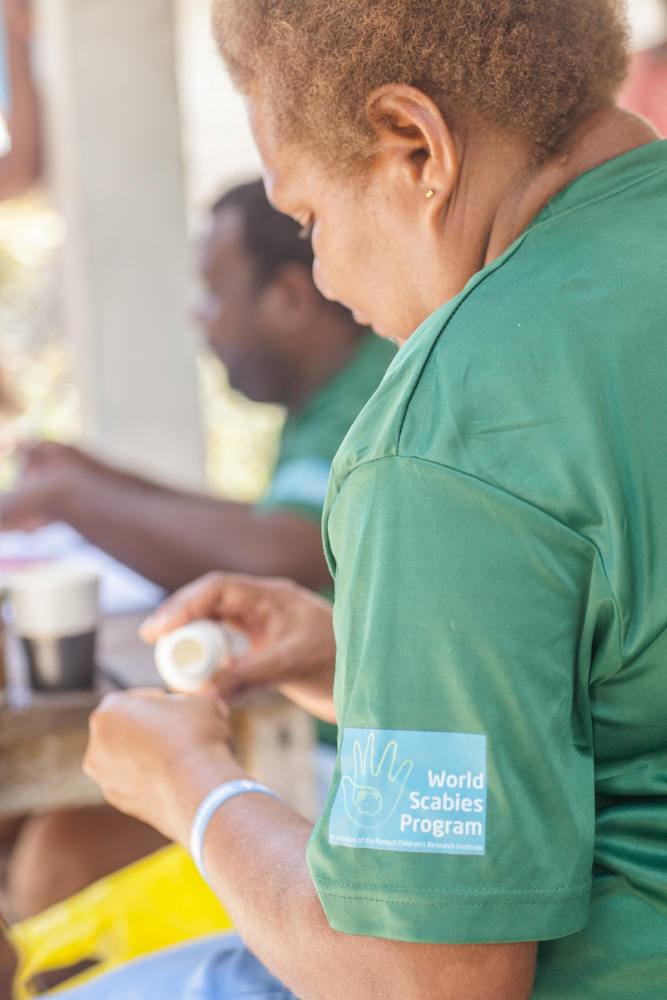
Dispensing medicines during MDA, WSP 2022
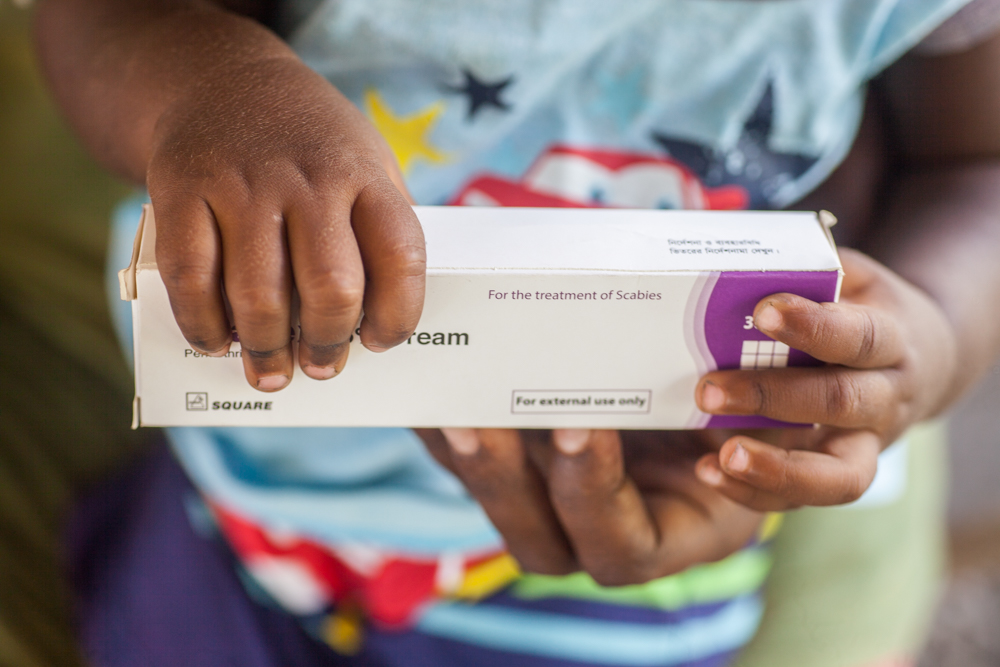
Child holding permethrin cream, WSP 2022

MDA medication for scabies, Solomon Islands
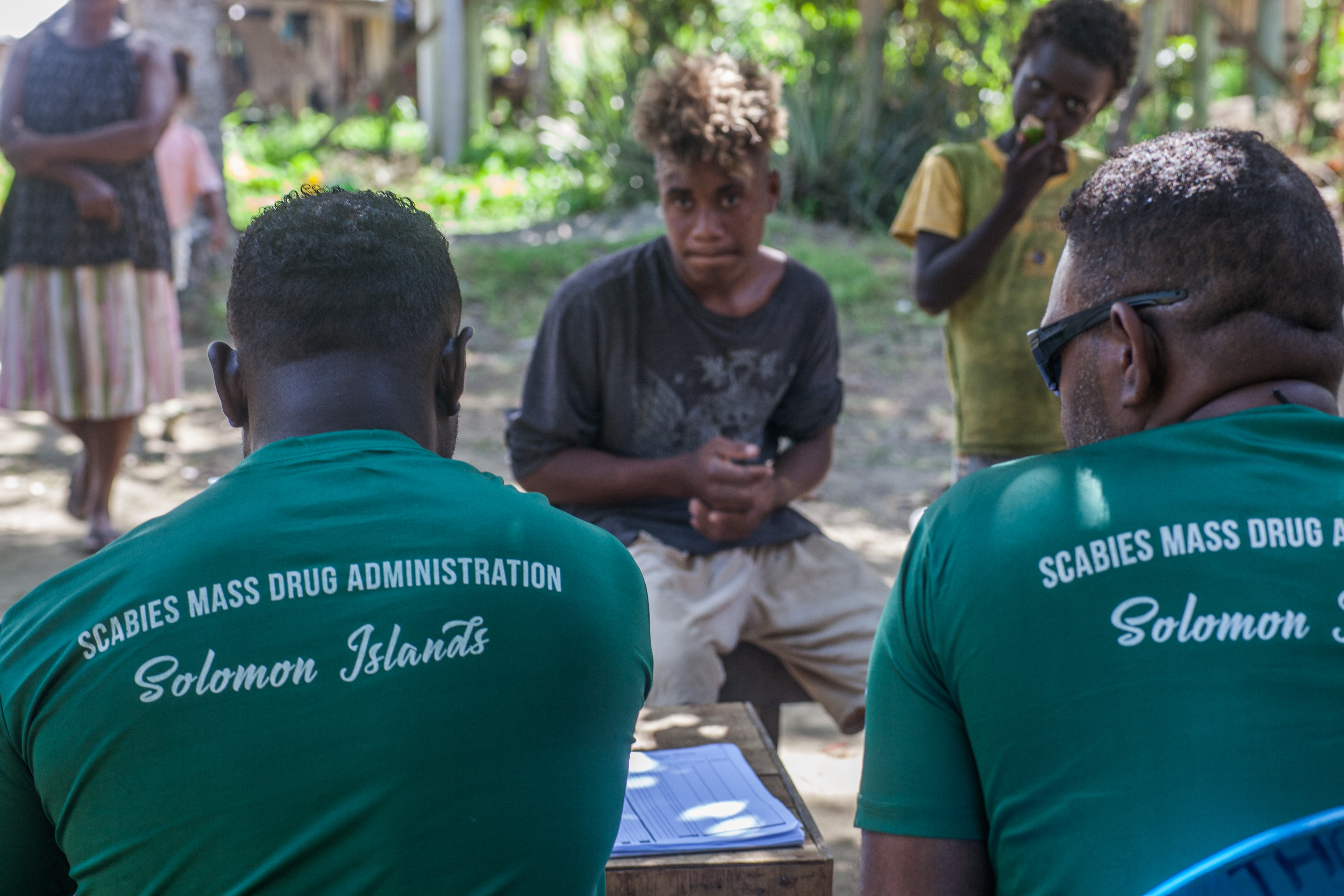
Recording participant details during MDA, Guadalcanal WSP 2022
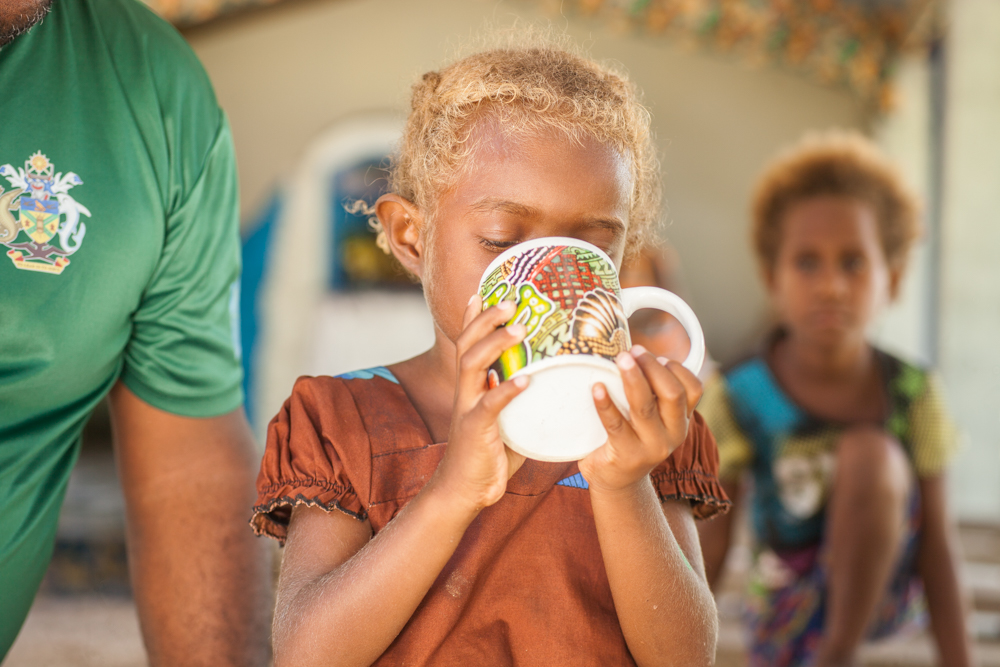
Girl drinking water during MDA, WSP 2022
Solomon Islands National Scabies Baseline Prevalence Survey
In Solomon Islands, in collaboration with the Ministry of Health and WHO, over 9,000 people of all ages were examined across the provinces as part of the first ever national scabies baseline prevalence survey. A two-stage random cluster-sample methodology was used, randomly selecting villages or urban areas followed by a random selection of households.
Nine teams, including a nurse, a skin examiner, a driver and a local guide, trekked through jungles and travelled hours in boats to reach communities all over the country. The survey was positively received by communities, especially as the teams provided treatment to residents with scabies in very remote areas. Communities in the highlands of one province expressed gratitude for being selected to be part of the survey as the community rarely gets the opportunity to participate in health programs, highlighting the challenges with access to health care.
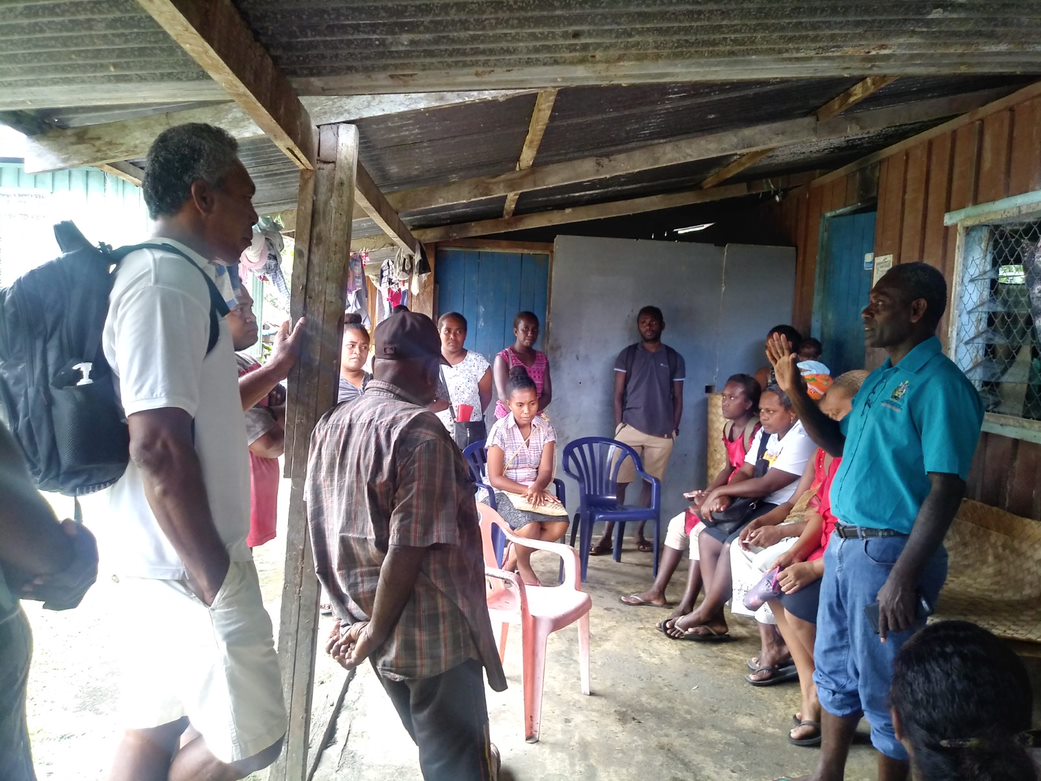
Explaining the survey field test, WSP 2021
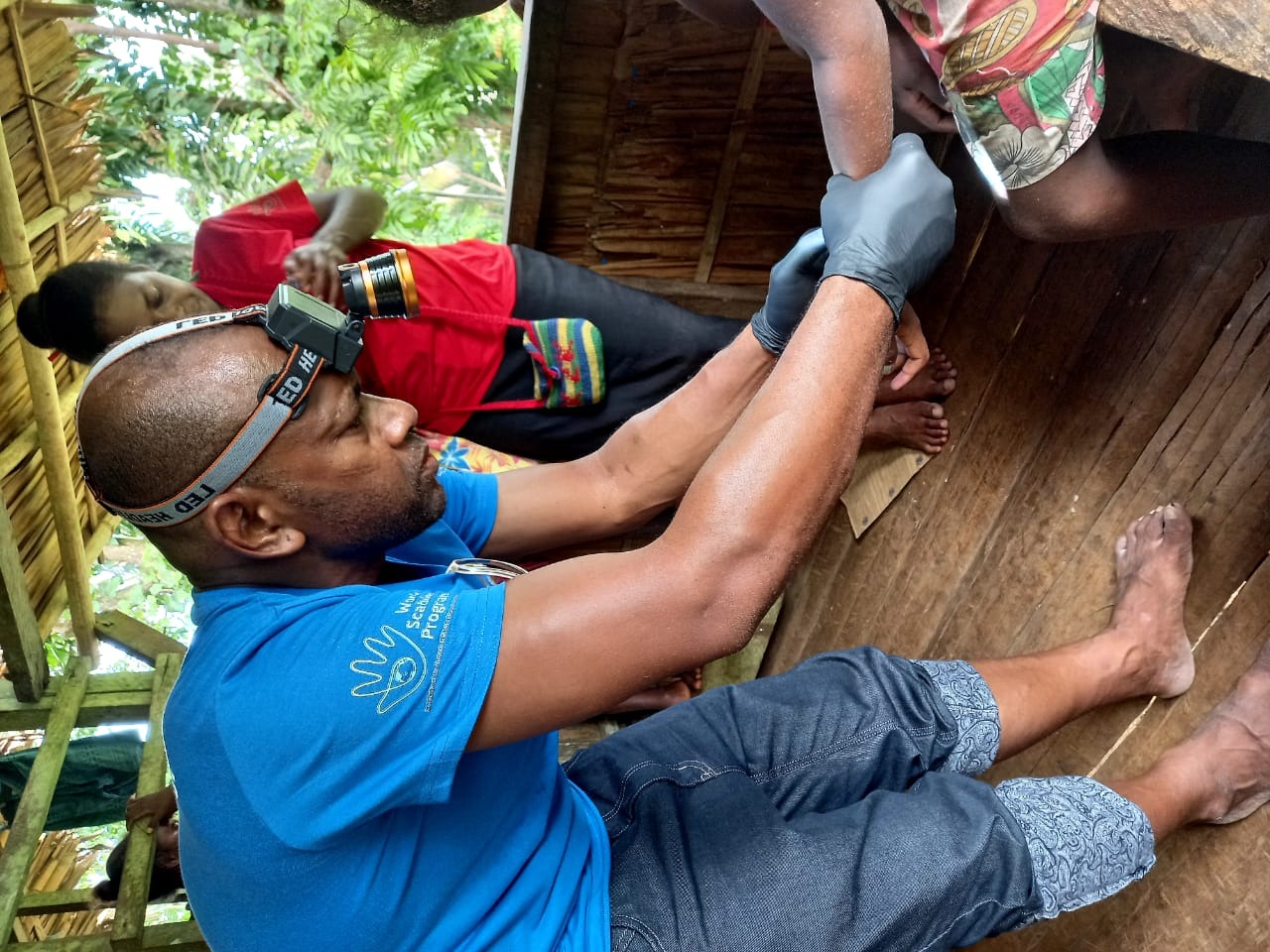
Skin examiner during the baseline prevalence survey in Solomon Islands, World Scabies Program 2021
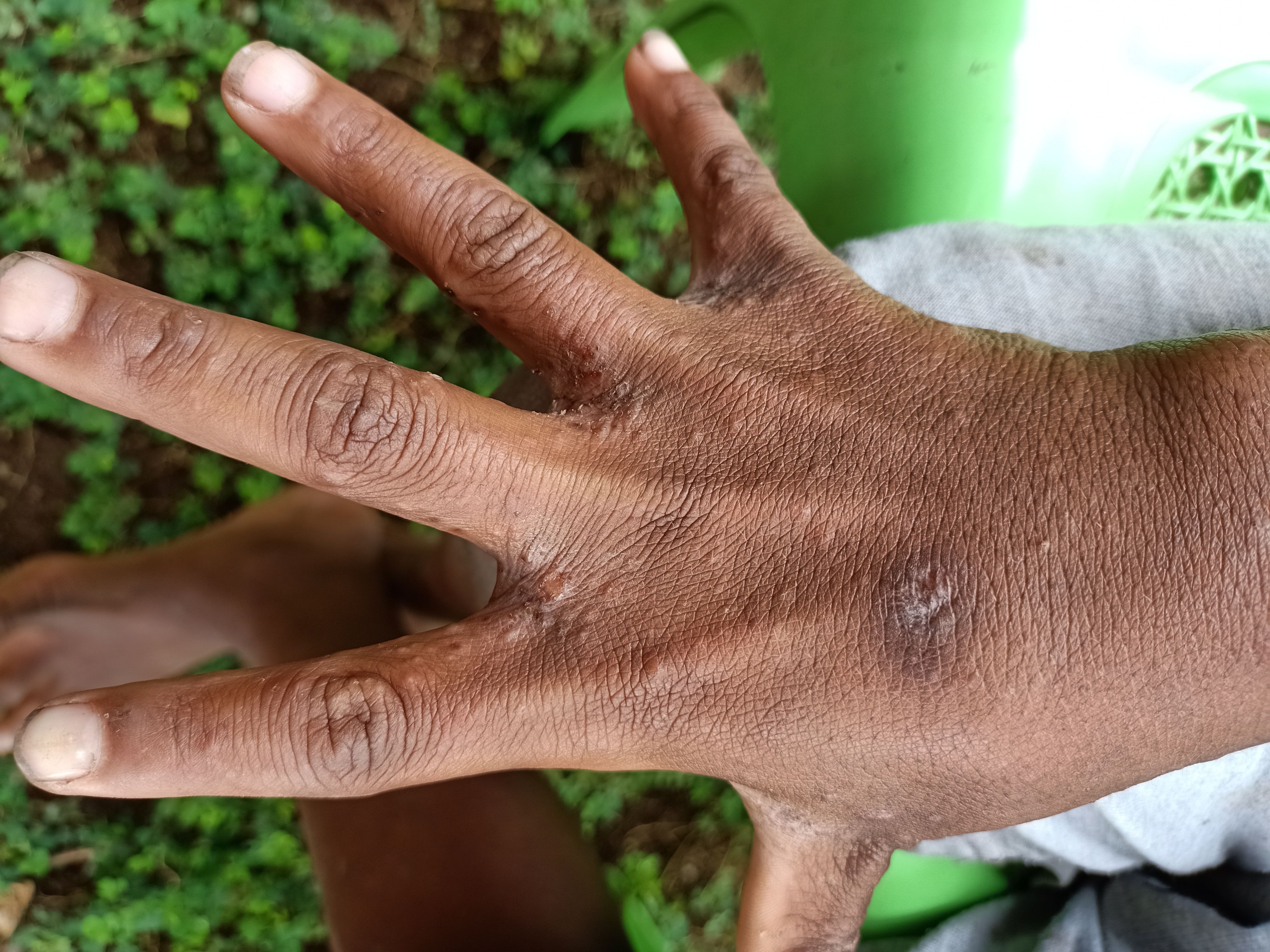
Picture of scabies found on a survey participant in Makira, Solomon Islands, 2021 World Scabies Program

